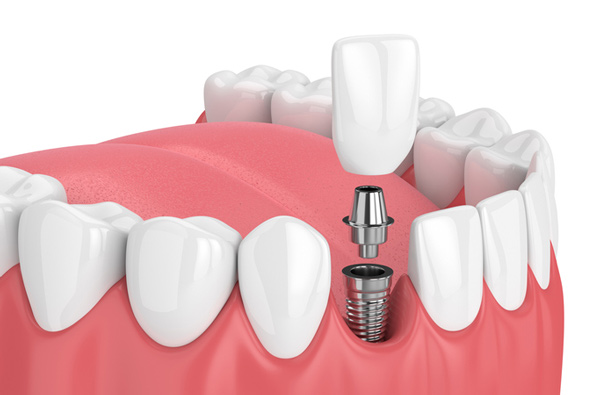10 Easy Tips To Take Care Of Your Dental Implants
- Written by NewsServices.com

Dental implants are one of the best recommendations by the dentist to fill the missing teeth gap. They are the way for the people who have missed their teeth and want to enjoy their appearances. Either you have them already or are considering getting the procedure, maintenance is very important.
You will lose those teeth too if you don't practice oral hygiene and won't care before and after the surgery. Here are fourteen simple tips you can follow to increase the life of your implants.
Care After Surgery
Once you are done with the surgery procedure, you are right into the care mode for your dental implants. Avoid hot food and drinks unless your dentist tells you how long exactly you have to stick to the cold drinks.
Rinse your mouth with lukewarm water to remove the chemicals stuck to the gums during the procedure. Avoid contact with the area such as trying not to touch the affected area with your tongue or fingers.
Brushing And Flossing
Although dental implants are artificial teeth, they still need proper care as your natural teeth do. They need to be brushed twice for at least two minutes on each brush and don't forget to floss especially around the base of implants because they have tiny gaps at their base and tiny food particles and debris is accumulated between those gaps that can cause serious issues like gum swelling, bad breath, and sometimes bleeding from gums as well.
Use Water Flosser
Floss twice a day, or it is recommended to floss after every meal you have. Especially get the area between the teeth and around the implant’s gaps. But you have seen that it is too difficult to reach those tiny gaps with the thread floss.
Use a water flosser, also called water jet, as they are made for dental implants. They help remove plaque between the teeth and prevent bacteria production.
Saltwater Rinse
After you get dental implants, you will experience minor gum problems such as swelling, pain, and inflation. Saltwater is highly recommended to deal with this problem. Not only do they reduce the number of bacteria in your mouth but also relieve the pain and clean the affected area.
Use Manual Toothbrushes
Selecting the right tools for oral hygiene assists you with healing and maintaining the good health of your teeth and mouth. Using an electric toothbrush can be an uncomfortable experience after surgery.
Because the affected area gets sensitive right after the treatment and electric toothbrushes have vibrations that can loosen the crown. So it is recommended to use manual toothbrushes.
Use A Soft-Bristle Toothbrush
Always watch which toothbrush you are going to use to treat your sensitive gums. Hard toothbrushes can be irritating for your gums and sometimes cause gum bleeding of the affected area leading to redness and pain. Always use soft bristle toothbrushes to brush your teeth.
Replace Your Toothbrush
Dentists recommend that you should replace your toothbrush after every month. Switching your toothbrush when its bristles start to fade ensures that plaque and bacteria will be removed effectively. Because once the bristol gets free, they are unable to scratch the plaque over your teeth and eventually lead to the accumulation of more plaque.
Watch What You Eat
Although dental implants are durable, that does not mean they cannot be damaged or collapsed, no matter how you treat them. Avoid hard foods such as nuts, taking a bite of the apple from those teeth, and other hard chewy things.
Don't Use Teeth As A Tool
The dental implants and attached prosthetics can move from the place causing damage to the implants. Things like opening the bottle cap using your teeth, chewing on a pen, holding a package from your teeth, and chewing on extremely hard foods can be dangerous for your implants.
Visit Periodontics Regularly
Be sure that you visit your periodontics at least twice a year for proper checkups and cleanings. Although you are a good brush and flosser, your implants still require maintenance and examination and your doctor helps you maintain the overall health of your implants and oral hygiene. Proper care and regular visits ensure that your implants can last for a long time.














